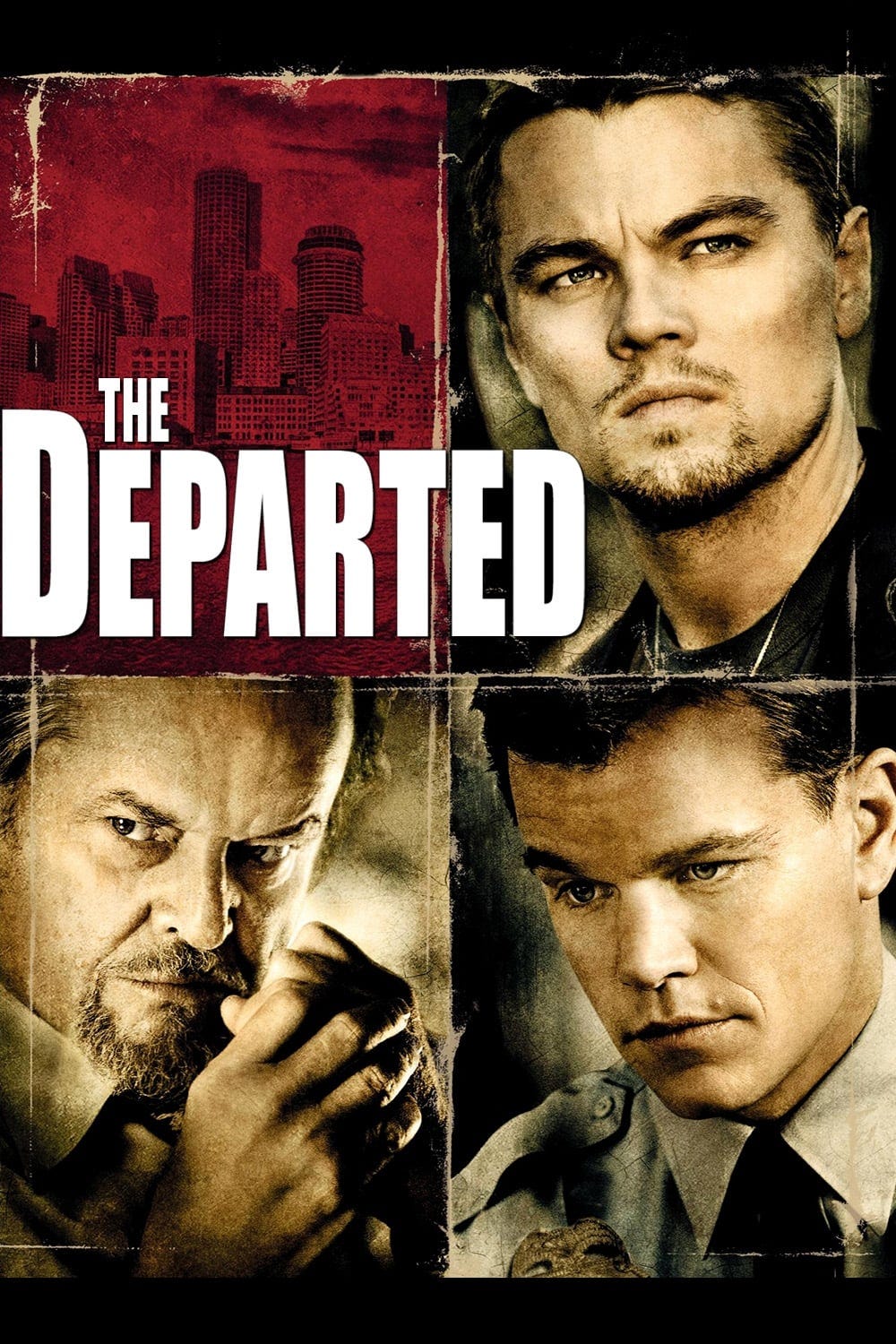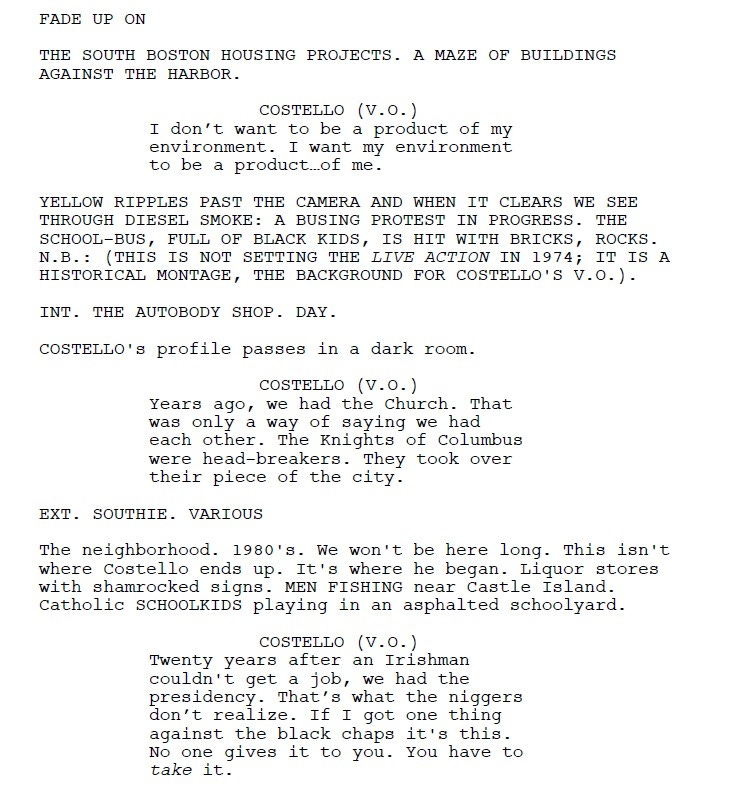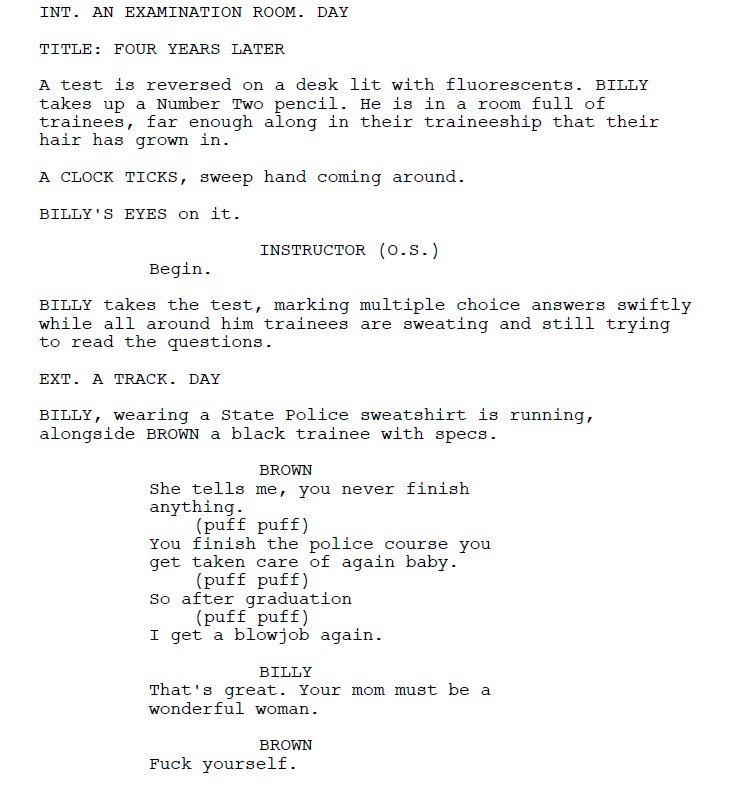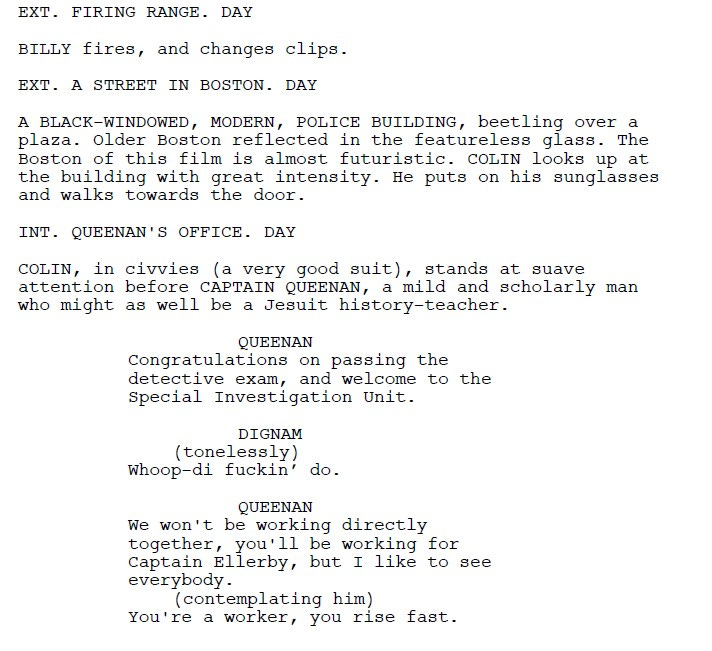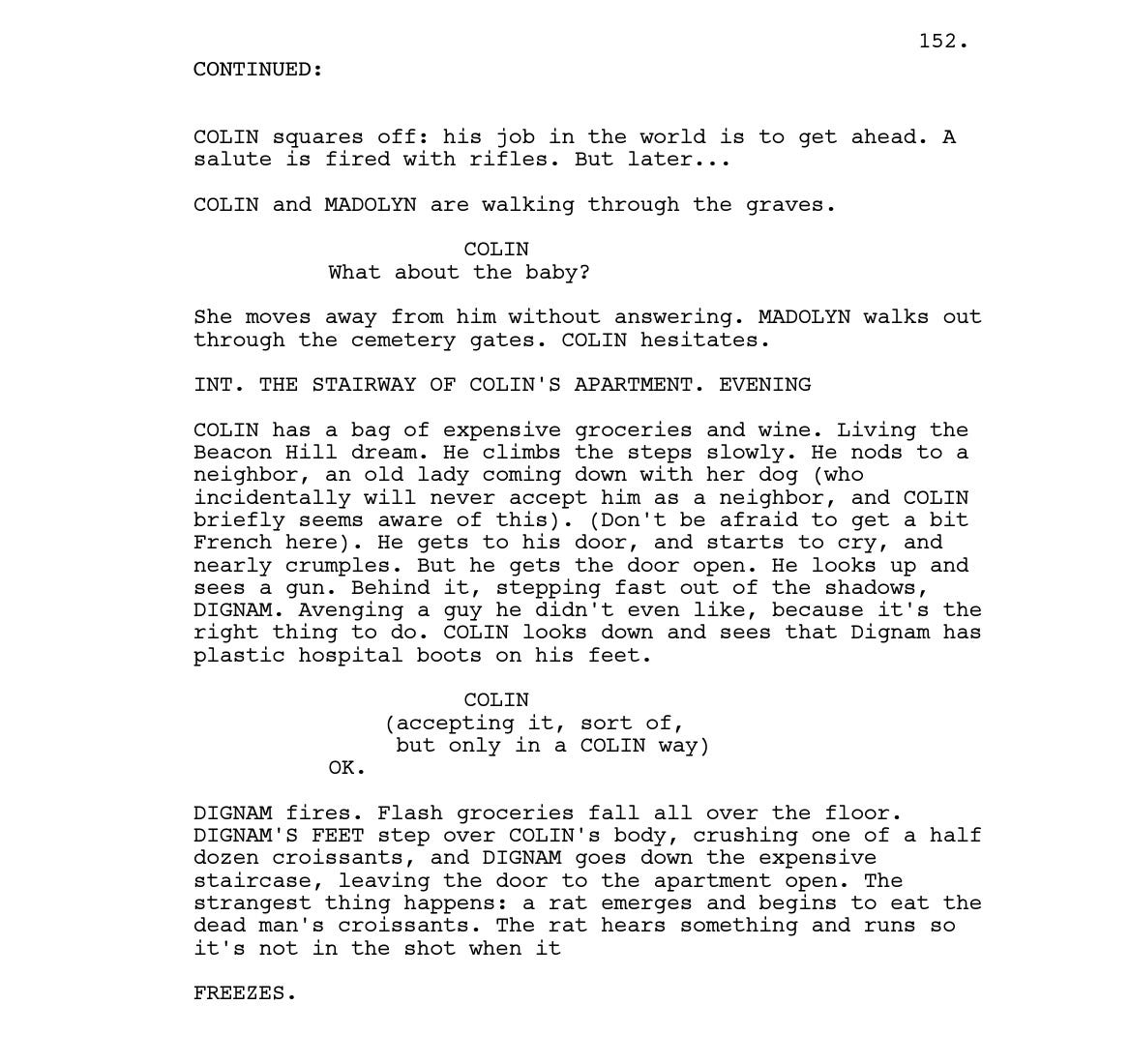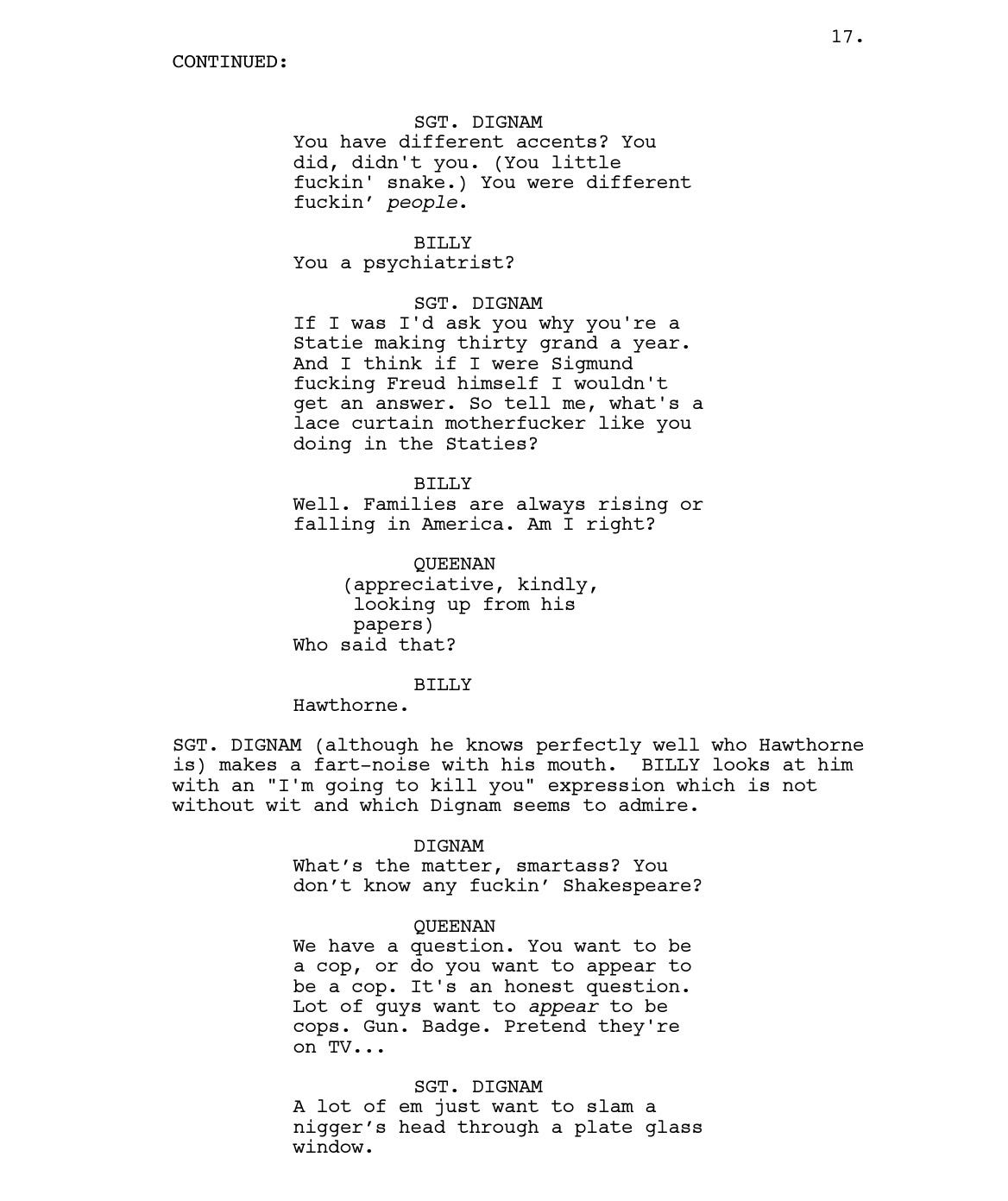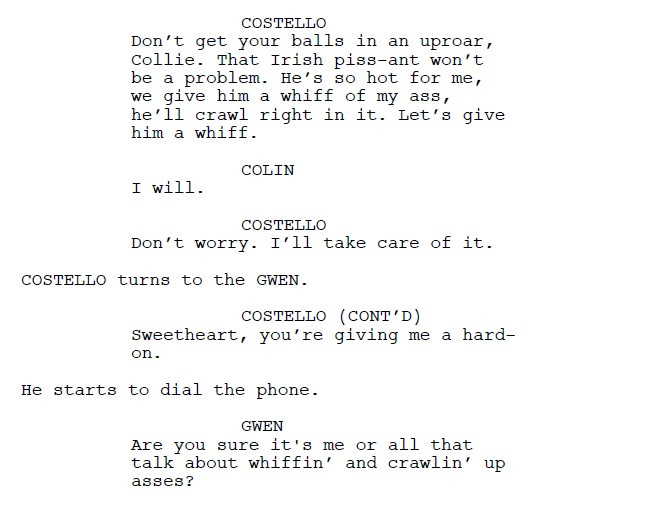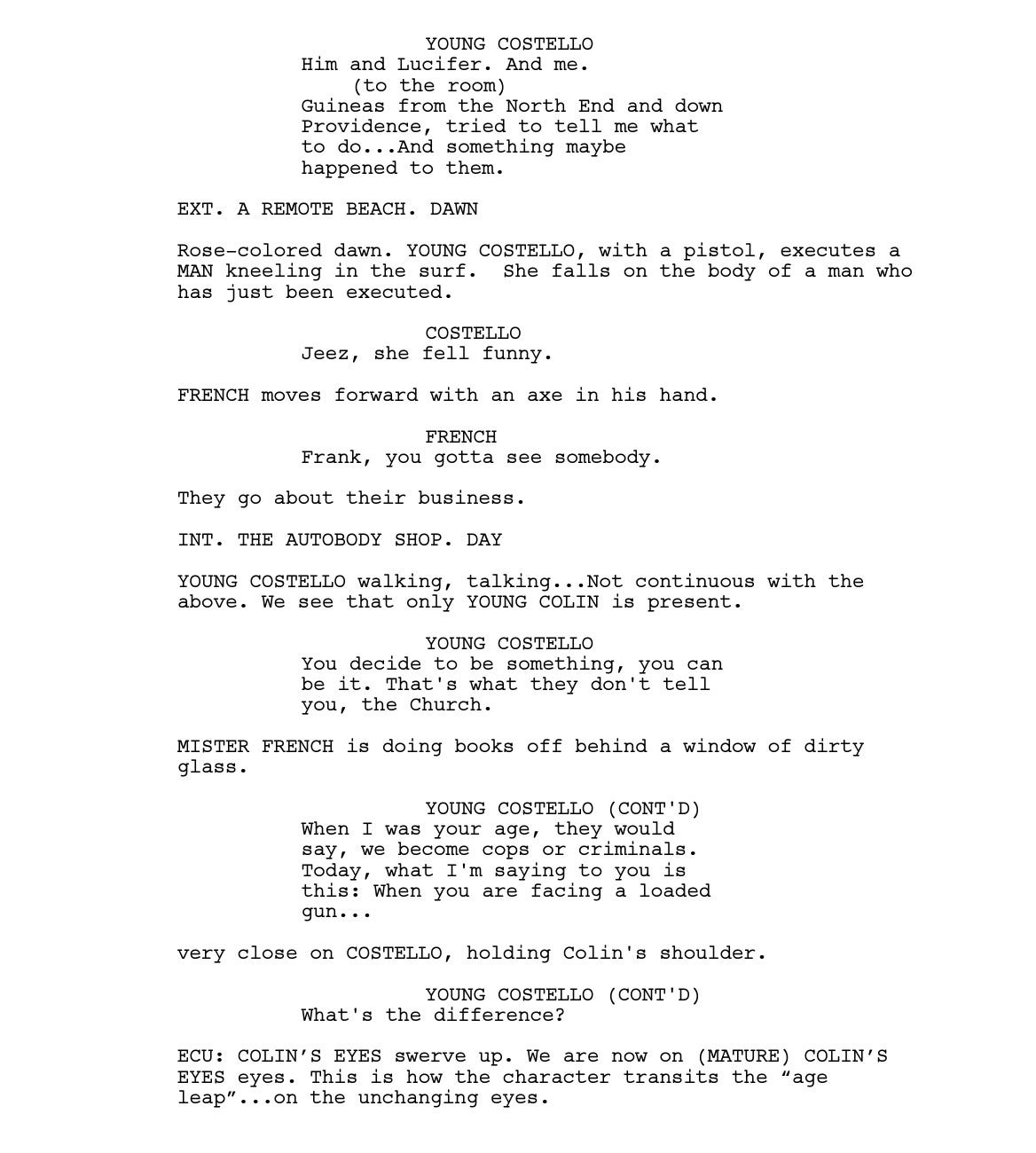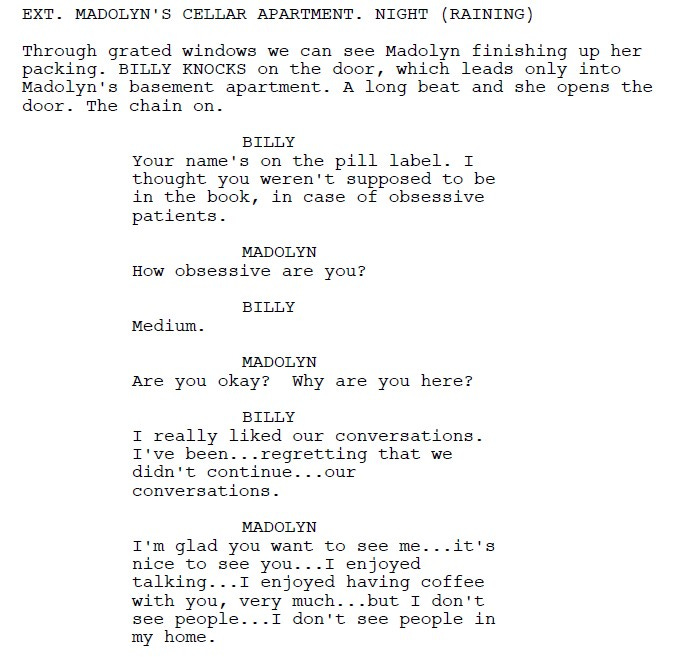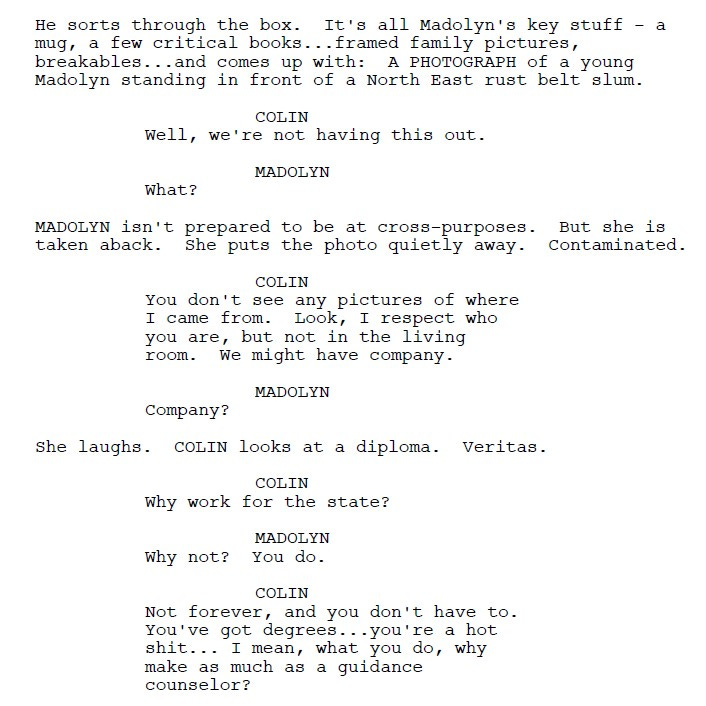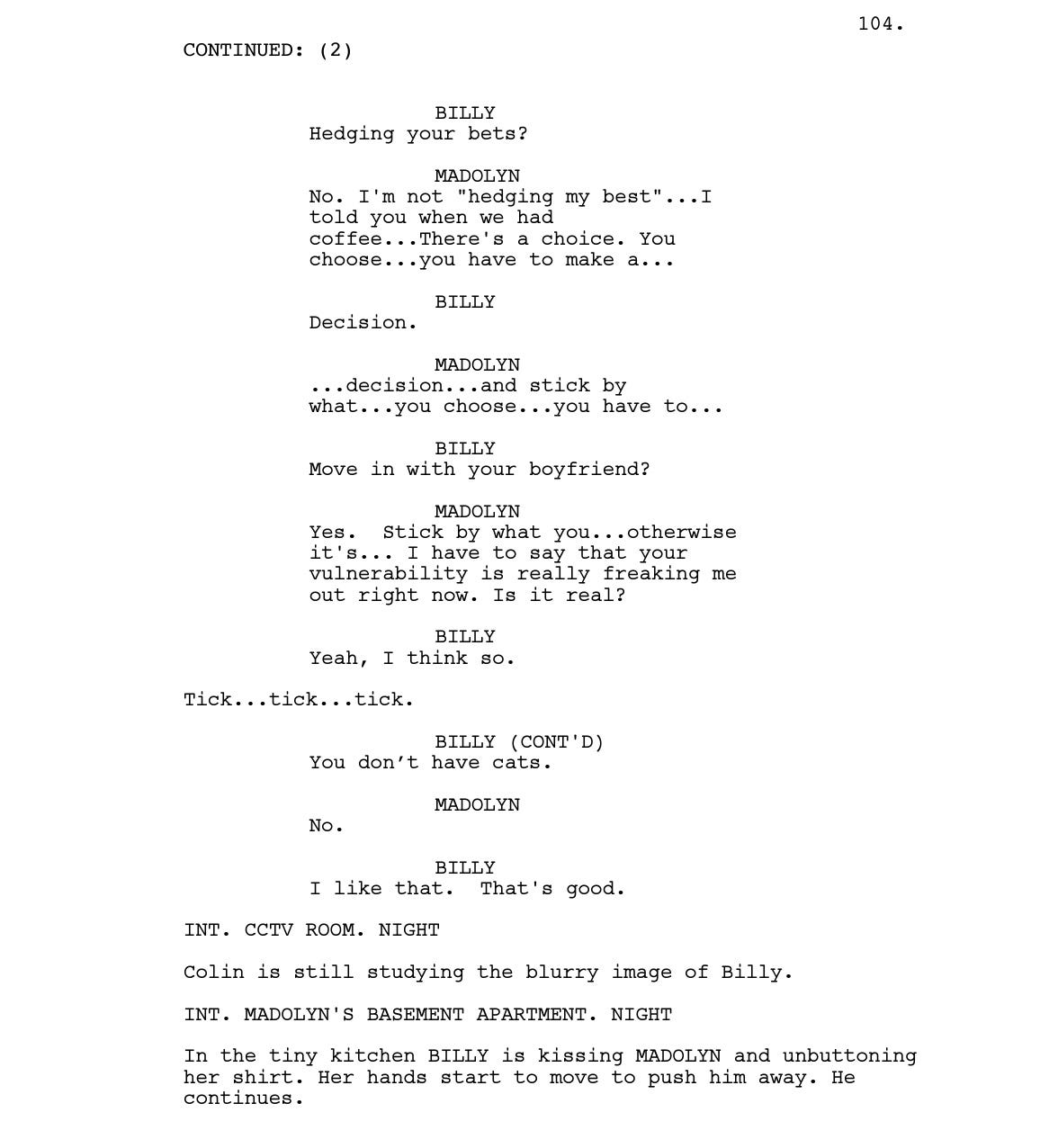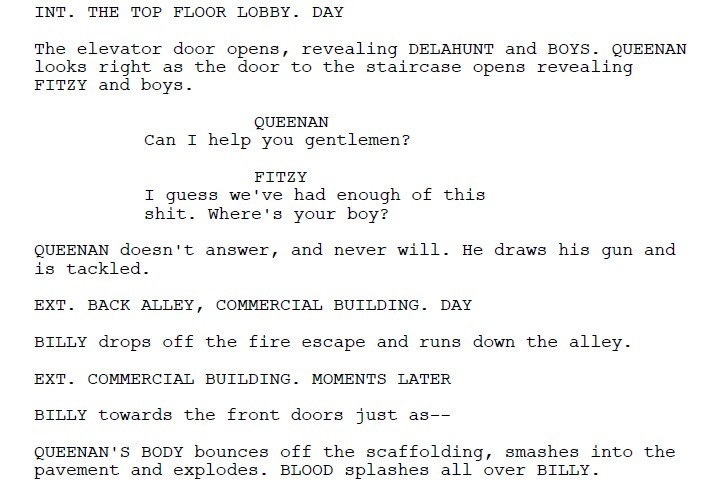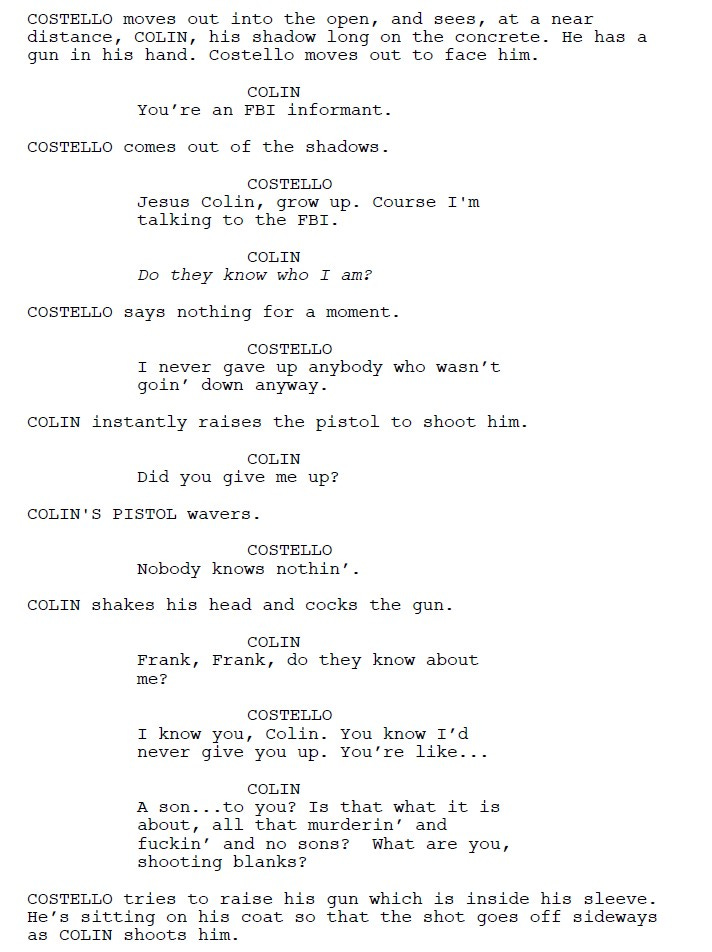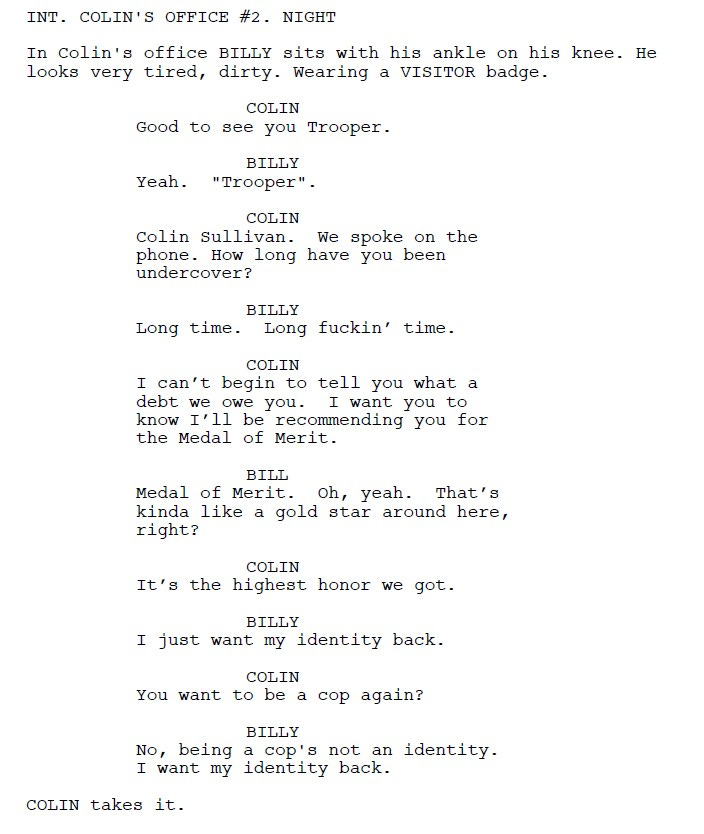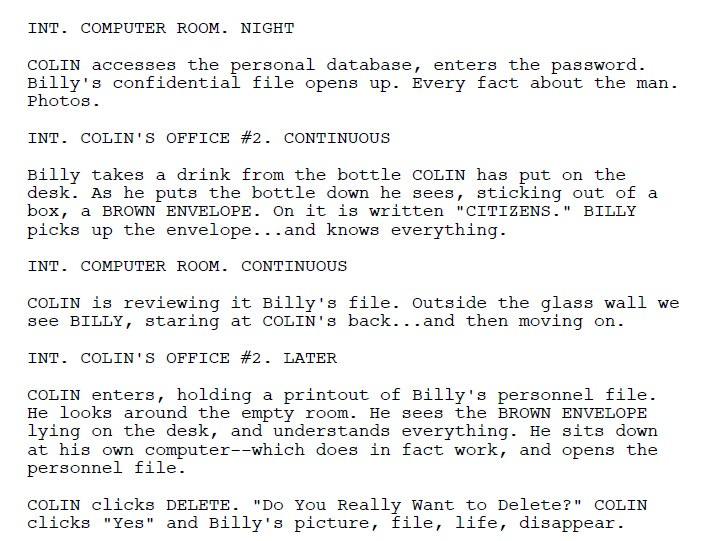The Departed (2006) Script Review | #30 WGA 101 Greatest Scripts of the 21st Century
A charged remake that stands on its own two feet, a crime saga about identity, double-crosses, and corruption.
Logline: To take down the South Boston’s Irish Mafia, the police send in one of their own to infiltrate the underworld, not realizing the syndicate has sent their own mole to join the police. While an undercover cop curries favor with the mob kingpin, a career criminal rises through the ranks. When both sides discover they have a mole in their midst, both the cop and the criminal must figure out each other’s identities to save their own lives.
Written by: William Monahan
Based on: Infernal Affairs by Alan Mak & Felix Chong
Pages: 152
A cop who is secretly a criminal. A criminal who is secretly a cop. Both on the hunt for the identity of the other to prevent their own cover being blown first; both romantically involved with the same woman. The stuff that pulp stories of intrigue are made of; yet in the hands of screenwriter William Monahan, The Departed operates at a higher level— a heady cloak-and-dagger affair that muses on identity, ambition, and deception, laced with a strong Bostonian flavor.
That last one is particularly important. Monahan’s screenplay is based on Infernal Affairs, the 2002 Hong Kong blockbuster, but it is a remake in screenplay structure and spirit only; using the premise as a launching pad to become its own thing.
The premise: To take down the notorious gangster Frank Costello, the undercover unit sends in Billy Costigan to infiltrate the Boston Irish Mafia. But what the police don’t realize is that Costello sent in one of his own to infiltrate law enforcement: a bright, ambitious, and a possibly mildly sociopathic Colin Sullivan. As Colin rises up the ranks, so too does Billy; but it doesn’t take long for each side to learn that they have a mole, turning into a race to catch the other first.
Instead of functioning as a page-for-page remake of Infernal Affairs, The Departed carves out its own space and identity for American audiences. It is a story deeply rooted in the clash between the cops in the Boston Southern district and the Irish American gangsters, one that also meditates on twisted morality and Catholic guilt (given its predominantly Catholic setting). Despite its grimness, it also has a bleak sense of humor that makes it palatable.
It’s also extremely bold in its approach. Whereas 99% of screenplays spend about 15 pages on setup leading up to the inciting incident, The Departed uses its opening 22 pages as pure setup before the title appears. But these opening pages are vital. We get a sense of the principal players— this includes people like Mister French, Costello’s right-hand man; and the undercover unit comprising of Captain Queenan and the foul-mouthed Sergeant Dignam.
Another example:
Even though it covers a lot of territory, it doesn’t feel like it’s dragging. Monahan doesn’t waste time describing his characters— sometimes, they are dropped into the conversation without any preamble.
What he prefers is to show us the character through their actions and the way they speak, and it goes without saying that Monahan captures the Bostonian Irish dialect very well on the page. For instance, right away we understand that foul-mouthed Dignam is no-nonsense and has strong principles (one of the reasons why he is seen at the end)…
… and is astute and educated, too. Captain Queenan is more paternal and kindly; he doesn’t need to display the testosterone-fueled aggression that is on full display in both the police department and Costello’s outfit.
Costello is yet another memorable character. Heavily influenced by actor Jack Nicholson (who eventually played him), Costello is portrayed as a post-60s lothario still going strong…
… Almost unnervingly polite, unpredictable, and definitely sadistic.
And then there’s the main duo. Billy speaks little, and there’s a lot of nervousness behind his words.
Colin knows to say the right stuff that gets him up the career ladder, and likes to portray a certain vision of himself, especially where his upbringing is concerned.
Amid all this is Madolyn, a psychiatrist who enters a relationship with Colin but displays a stronger attraction to Billy. She has fewer scenes compared to the others, but her role becomes vital.
All of that is to say: in this script, character is everything.
If that wasn’t enough, The Departed has a rapid-fire tempo that makes it an adrenaline rush to read. As the script progresses, the noose gets tighter. Queenan is killed in a shocking manner…
… Colin discovers that Costello is a secret FBI informant, and Billy just wants to get out. The tension builds, until it finally erupts in a violent clash at a parking garage.
But that’s still not the end! It takes a long time but on page 139, Colin and Billy finally come face-to-face…
… the moment is rendered in simmering yet terse prose, especially the payoff when Billy learns that Colin is the mole he was hunting all along.
Even with a story that’s filled with twists and turns, and adds up to 152 pages, Monahan always approached it as a character piece. His skill in balancing punchy prose with vivid characterisation can be attributed to his experience as a journalist before he moved into screenwriting, having contributed to outlets such as the New York Press, Talk, Maxim, and Spy; at the latter, he also served as editor in the magazine’s final year. He also wrote a critically acclaimed novel, Lighthouse: A Trifle. In the early 2000s, Monahan wrote his first spec script called Tripoli. Although it never got made, it landed him a meeting with Sir Ridley Scott that would prove pivotal. Scott mentioned a desire to make a film about knights; Monahan suggested the Crusades. Together, they made Kingdom of Heaven, becoming his first sold screenplay.
For The Departed, Monahan was hired by Brad Pitt to write the script, after Plan B secured the American rights for Infernal Affairs. Monahan, however, admits to not watching it, partly because he only got a badly translated transcript of the dialogue. Undeterred, he took the kernel of the idea and combined it with material he’d been saving up for a novel about the Boston Irish Mafia.
The lesson: Don’t throw away your unused material. You never know when it can be repurposed for a different idea.
Monahan approaches screenwriting a little differently to other writers. He considers it a literary endeavor and aims to write to make reading a screenplay a memorable reading experience. Where The Departed is concerned, he has succeeded (and won the Academy Award for Best Adapted Screenplay, too, for his efforts). It’s well-written, well-structured, and well-read. He doesn’t outline his scripts; instead, he prefers to start with the characters, using dialogue to reveal the personalities of the people in the story. With his strong ear for crafting authentic-sounding dialogue that makes you believe in the setting, Monahan outdoes himself. When you reach the last page, you feel as if you know each of these characters intimately. In a certain sense, perhaps that’s true because we’ve seen their hidden sides. It’s rare to read a rich and suspense-filled thriller; rarer still to read one that has plenty to chew on. The Departed succeeds on both counts.
Notes:
Berkowitz, Joe (December 20, 2012) | Oscar Winner William Monahan On How To Write Unforgettable Dialogue (Fast Company)
Edwards, Shanee (April 29, 2022) | 'The Tender Bar' Writer William Monahan Encourages You to Make Your Script a ‘Reading Experience’ (ScreenCraft)

